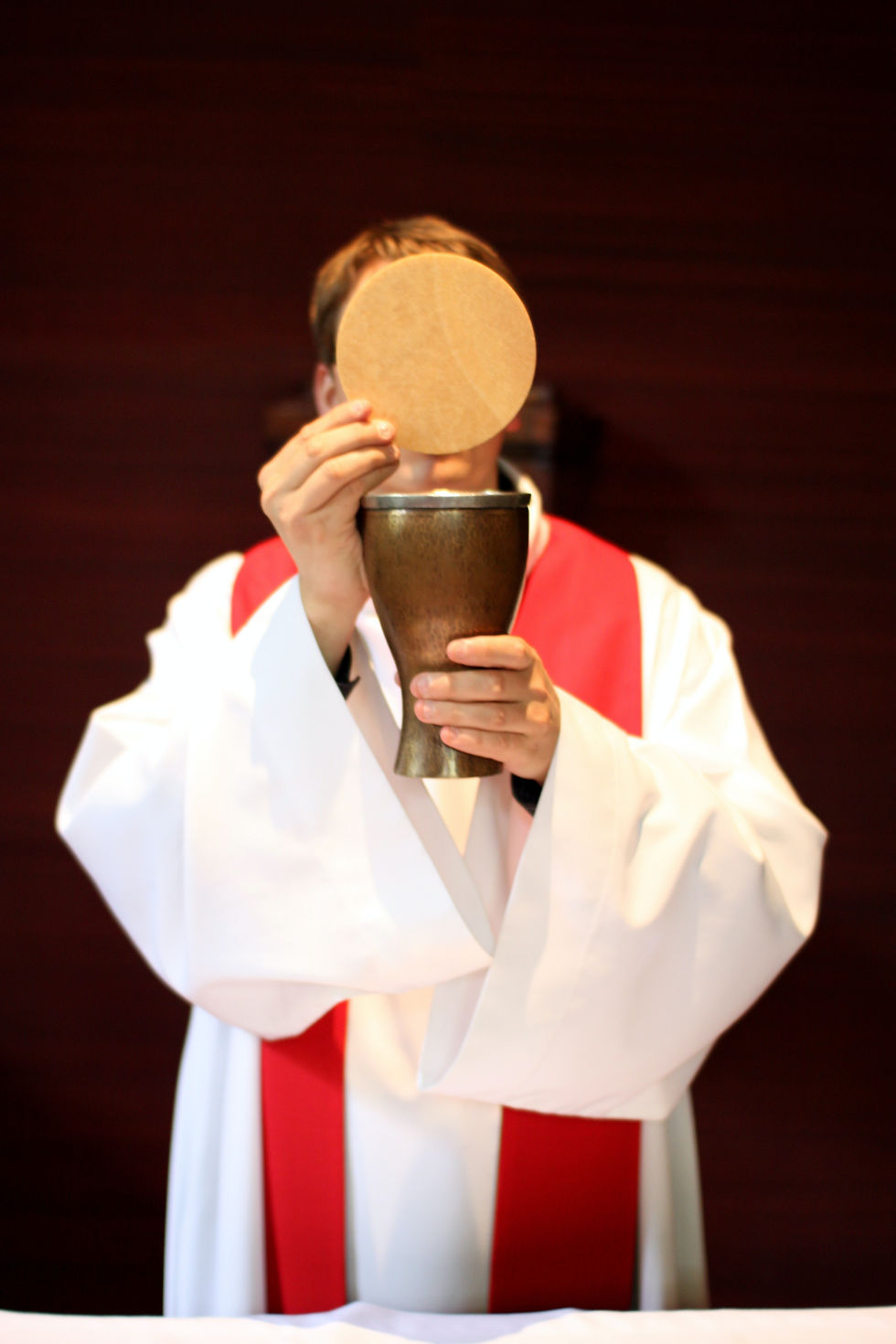21st Sunday in Ordinary Time (Ages 9-12): Something More
- thebetterpart

- Aug 23, 2024
- 3 min read
This Sunday, we return once again in our thinking to the moment when Jesus says, "I am the bread of life." Jesus tries to help the many people gathered around him understand the covenant: he has come down so that they might be raised up. Unfortunately, the discussion does not go well.
Jesus says,
“Very truly, I tell you, unless you eat the flesh of the Son of Man and drink his blood, you have no life in you”
What does Jesus mean?
The prophet Daniel describes a mysterious person called the Son of Man who comes from God. Jesus studies scripture and prays; he comes to understand that he is the Son of Man. Jesus will often use this name when he talks about himself.
"Flesh and blood" is a way of saying that someone is human. When people feel that something is too difficult to do, they will say, "I am only flesh and blood," meaning, "I am only human." But what about the Son of Man? Is he only human?

When many of his disciples heard it, they said, “This teaching is difficult; who can accept it?”
The disciples feel troubled. Why should they want the Son of Man's life in them? They have their own life. It is too strange to think of eating and drinking Jesus' flesh and blood.
What do we know about Jesus' flesh and blood? What does his flesh and blood do? We know his flesh dies on the cross and his blood spills on the ground. He is only human after all. But we also know that he offers the death of his flesh and blood—he offers his whole life—as gift. We know this because at the Last Supper he makes it clear. He takes, blesses, breaks the bread, and gives it to the apostles. Take, he says, this is my body. He gives them the cup filled with wine and says, Take and drink, this is my blood poured out for you. He offers his flesh and blood as gift.

But Jesus, being aware that his disciples were complaining about it, said to them, “Does this offend you? Then what if you were to see the Son of Man ascending to where he was before?
Jesus' flesh and blood, dies but is Risen. His flesh and blood ascends to God.
Only human, Jesus offers his flesh and blood. He stretches out his arms on the cross and gives all that he is to God. Only human? Yes. But in giving everything, he is filled with divine life. Only God gives and gives so abundantly. Only God is gift.
It is the spirit that gives life; the flesh is useless. The words that I have spoken to you are spirit and life.
Jesus' flesh dies. Jesus' flesh rises, filled with Spirit and Life. It ascends. This is what we want, too, is it not?
How can we do this? How can we become something more? The flesh is useless. We cannot do this on our own.
Think of things that grow on the earth, like wheat or grapes. They can become much more. They can become bread and wine, but not on their own. On their own they are useless. They need humans to gather them up, to work with them, kneading and pressing, until they become something more—bread for food, wine for joy—something greater. Humans are like wheat and grapes; we also grow on the earth, and yet, with our intelligence and imagination and our capable hands, we are also much greater than wheat and grapes. Alike, but more.
In a similar way, cannot humans become much more? Cannot we become something greater? On our own, though, we are useless. We need someone who is like us, but also much greater to gather us up. Alike, but more.
Who can do this? Simon Peter asks this same question and answers it as well. He knows.
“Lord, to whom can we go? You have the words of eternal life. We have come to believe and know that you are the Holy One of God.”
Who can raise us to something more? One who is only human, only God. One whose flesh and blood is already Risen. The Holy One of God whose words are Spirit and Life.
“Very truly, I tell you, unless you eat the flesh of the Son of Man and drink his blood, you have no life in you”
If we take his flesh and blood into ourselves—if we eat the bread of life and drink the wine of salvation—then what ascends to God? If our own small gifts to God become part of Jesus' great offering, who ascends?
Take us with you, Lord. Raise us up to something more.





Comments